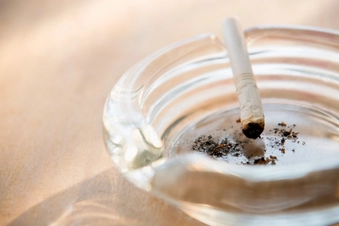Preparing Your Body for Egg Freezing

Make a Preparation Plan
If you're planning or just thinking about egg freezing, getting your body and mind ready will help you feel your best and optimize your results. Eating nutritious foods, avoiding alcohol and nicotine, and deciding how you'll manage stress are a few key ways to prepare for the procedure.

Study the Procedure Instructions
Carefully review the procedure guidelines you receive from your care team. Make sure you're clear on all the instructions. Be sure to ask:
- How you should approach physical activities
- If your current meds are safe to keep taking
- What dietary supplements are OK

Keep a Healthy Weight
A weight that isn't healthy for your body, whether it's too low or too high, can throw off your menstrual cycles and affect ovulation. Some U.S. fertility clinics set a BMI (body mass index) limit for the egg retrieval process, with most of these citing safety when giving anesthesia as a main concern.

Eat Well
Zero in on nutrition by eating a variety of high-quality produce, grains, and lean proteins. Research supports the Mediterranean diet for fertility health. Veggies and fruit are high in antioxidants. Whole-grain foods are packed with fiber and B vitamins, which might boost egg quality and development.

Try to Avoid Toxic Exposure
There is evidence that some toxic exposures can impact fertility. Endocrine-disrupting chemicals (EDCs) are of special concern because they're found in many everyday items and may affect your hormones and harm your fertility. Ask your care team about ways to curb your exposure. You can find more info and lists on the Endocrine Society website.

Keep Up Your Exercise
Keep up your regular exercise routine, as long as it's moderate. Activity that puts heavy demands on your body can cause your progesterone levels to drop and impact ovulation. If you run or cycle, limit your workouts to less than an hour a day, totaling fewer than five hours a week.

Don't Smoke
Tobacco use harms fertility. Smoking disrupts your hormones and weakens the function of your ovaries, speeding up aging – which depletes your egg supply – and even bringing on early menopause. Ongoing data doesn't show ENDS (electronic nicotine delivery systems) to be a safe alternative to regular cigarettes, either. If you smoke or vape, ask your health care team for help quitting.

Curb Caffeine
A moderate amount of caffeine hasn't been shown to affect fertility. Stick to less than 200 milligrams – about one or two 6- to 8-ounce cups – a day. Check the caffeine levels in your coffee or tea if you want to make sure that you're within the guidelines.

Guard Against STIs
Bacterial STIs (sexually transmitted infections) such as chlamydia and gonorrhea are a main reason for women not being able to get pregnant. STIs don't always have symptoms, so they might go unnoticed, thus untreated. Be sure to get screened before egg freezing.

Say 'No' to Alcohol
It's best to cut out alcohol before an egg freezing cycle. Research shows that while drinking alcohol in the year before fertility treatment doesn't seem to affect your results, ongoing alcohol use or even short-term drinking close to treatment may hurt your outcome.

Take Prenatal Vitamins
Since egg retrieval is part of potential pregnancy, some doctors advise taking a prenatal vitamin along with making other health upgrades. Ask your care team whether prenatal vitamins are a good idea before you do egg freezing. These dietary supplements have key vitamins, including folic acid, which can guard against neural tube defects in a baby.

Lighten Your Schedule
Plan your egg freezing cycle at a time when you don't have major events, such as demanding deadlines or big social or family commitments. This can help you get ready emotionally by providing a feeling of control.

Plan What to Do if a Cycle Fails
Being positive is a good thing, but it's a reality that treatments don't always work. Think about what you'll do if that should happen. Before your cycle, ask your doctor or care team to help you figure out the next step if needed.

Find Ways to Soothe Stress
Plan ways to ease stress during your treatment, zeroing in on the days that might be most taxing – mentally or physically. A few popular practices are yoga, meditation, journaling, and visualization techniques.

Sidestep the Night Shift
It's ideal if you can avoid working the night shift. Exposure to artificial light at nighttime disrupts your body's circadian rhythms, which your fertility hormones need to release properly. If you need to keep the shift, try to use your off-hours to catch up on sleep.
Show Sources
IMAGES PROVIDED BY:
- Science Photo Library/Getty Images
- E+/Getty Images
- Moment/Getty Images
- iStock/Getty Images
- Johner Images Royalty-Free/Getty Images
- Moment/Getty Images
- Tetra Images/Getty Images
- Thomas Barwick/Getty Images
- The Image Bank/Getty Images
- iStock/Getty Images
- Moment/Getty Images
- Westend61/Getty Images
- DigitalVIsion/Getty Images
- DigitalVision/Getty Images
- Moment/Getty Images
SOURCES:
UCSF Center for Reproductive Health: "Preparing Emotionally For Your IVF Cycle."
Mayo Clinic: "Female Fertility: Why Lifestyle Choices Count."
American Society for Reproductive Medicine: "Obesity and Reproduction: A Committee Opinion," "Tobacco or Marijuana Use and Infertility: A Committee Opinion."
UT Health Austin: "Achieving a Successful Pregnancy Through Egg Freezing."
Nutrients: "The Role of the Mediterranean Diet in Assisted Reproduction: A Literature Review."
National Institute of Environmental Health Sciences: "Endocrine Disruptors."
Journal of Ovarian Research: "Premature ovarian insufficiency: a review on the role of tobacco smoke, its clinical harm, and treatment."
American Sexual Health Association: "The Impact of STIs on Fertility."
Cedars Sinai: "Should I Freeze My Eggs?"
Frontiers: "Impact of night shift work on women's fertility, pregnancy and menopause."